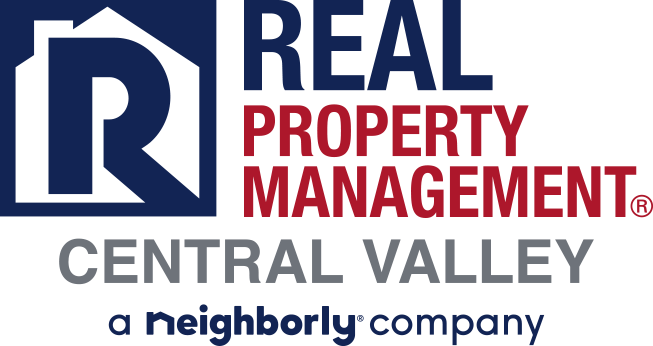What are the most important laws landlords should know?

Owning rental properties in the Central Valley is an excellent way to build passive cash flow and long term wealth but the average landlord does have important laws and regulations that they must follow.
In this article we will list the most important laws and regulations that landlords must follow in 2022 and beyond.
Landlord Laws And Regulations Landlords Must Know
Landlord-tenant laws prohibit a landlord from denying housing to someone based on any discriminatory factors. That’s because the Fair Housing Act applies to every state across the country., and it keeps landlords from discriminating against tenants due to national origin, race, color, religion, sex, familial status, or disability.
For example, you can’t ask prospective tenants any specific questions about their personal lives. It’s also against the law to set restrictive standards for members of certain groups of people. And, if a current renter’s circumstances change, you can’t terminate the rental agreement for discriminatory reasons, either.
Credit reporting under the Fair Credit Reporting Act
Under the Fair Credit Reporting Act, a landlord must get an applicant’s permission to run a credit report. Typically, the rental application should obtain consent from the tenant to run a background screening check. You must then provide the prospective tenant with information about the credit reporting agency.
Now let’s suppose you decide to deny the application based on the information contained in the credit report. In that case, you must inform the tenant of this—and you must explain what factors were included in your decision to reject their application.
Laws about drafting a rental agreement
The tenancy agreement is a legal document between you and your tenant. The rental agreement should state the lease term, rent amount, late fees, and security deposit amount. It should also include any clauses regarding pets, maintenance, and property inspections.
it’s also smart to remember that the rental agreement can’t contain clauses that contradict state or federal laws. For example, some states have rent control measures or will limit charges for late fees and security deposits. So, you need to know what exactly your state allows before drafting a rental agreement to ensure you’re aligned with the legal parameters in your state.
Now, can a landlord break a lease legally? Yes, but only if the tenant is guilty of a lease violation. But even in those cases, you have to go through the eviction courts to legally get the tenant out of the rental property.
What about a “tenancy at will”? It doesn’t matter whether or not there is a signed lease—or whether the tenant lives there on a month-to-month basis. Either way, you are still required to follow the law governing verbal rental agreements. Even a squatter has rights, and you can’t carry out a self-help eviction to remove them from your property.
Laws regarding a tenant’s privacy rights and quiet enjoyment
The tenant’s legal right to quiet enjoyment also protects their privacy. In essence, this landlord-tenant law lets the renter live in the property as if it was their own.
So how does “quiet enjoyment” affect your responsibilities? For starters, you can’t enter the property at will. You must typically give proper notice to carry out a property inspection or enter the property for other reasons.
However, the warranty of quiet enjoyment also means that your tenant can’t unnecessarily disturb the peace of the neighbors. A tenant cannot refuse to allow you to enter the property after you give them the appropriate notification, either.
Rental inspection property laws: Your tenant has rights
While you are the property owner and are the one who has invested tens or hundreds of thousands into the rental unit, you must still adhere to the laws on property inspections. However, no rules define “how often is too often” when it comes to property inspections.
That said, there are a few guidelines for determining how to avoid violating rental inspection laws. For starters, you should never make impromptu visits to the property. Even a friendly stopover—something like, “I was just passing by and wanted to see how you are”—could be taken the wrong way. And, when you ask to do an inspection of the home, you should always ensure that you specify a reasonable time frame in a written inspection notice.
You should also ensure that the rental agreement stipulates how you plan to deal with property inspections. An annual or bi-annual property inspection is typically reasonable for most properties.
Laws that regulate security deposits
State laws typically regulate security deposits. As such, there may be limits on how much you can collect for a security deposit on your rental property, as well as how to hold the deposit and when you should return it.
For example, many states stipulate that a landlord holds the deposit in a separate, interest-bearing account. As such, the deposit must be returned in full, along with interest, at the end of the lease—provided that there are no rent debt or lease violations to contend with, of course.
Rental property laws regarding safety, repairs, and maintenance
By law, landlords must provide habitable housing to all tenants—even if the tenant is guilty of lease violations. As such, it’s vital to ensure that your tenants always have access to hot and cold water, trash removal, heating and cooling, and all necessary utilities. You are also responsible for keeping the unit free from pests and vermin.
Remember, though, that tenants also have responsibilities to care for the rental property. This means that you can dictate how clean a tenant must keep the unit. They can’t allow garbage to build up or willfully damage the property, either. They must also promptly inform you if there are any maintenance issues that need to be dealt with.
Laws regarding evictions
Landlords can terminate the lease early if a tenant violates the rental agreement in certain ways. However, you must follow eviction laws to legally remove a tenant from the unit.
Let’s suppose a tenant doesn’t pay their rent, causes damage to the property, or seriously violates a lease clause. In that case, you must serve the appropriate notice to the tenant. Typical notices are “pay or quit,” “cure or quit,” or unconditional quit notice. For a legal eviction process to be successful, it is vital to both follow the law and record all correspondence you have with the tenant.
It is also extremely important to understand that a self-help eviction is illegal. You can’t change the locks, remove the tenant’s personal belongings, or shut off utilities to force them out—even if they’re violating the lease agreement. You must also have a court order in hand before forcibly removing a tenant.
Contact RPM Central Valley
At RPM Central Valley, we specialize in local property management and our team will save you the time/hassle of managing your investment properties yourself.
To learn more about the services that we can offer you, contact us today by calling (209) 572-2222 or click here to connect with us online.
